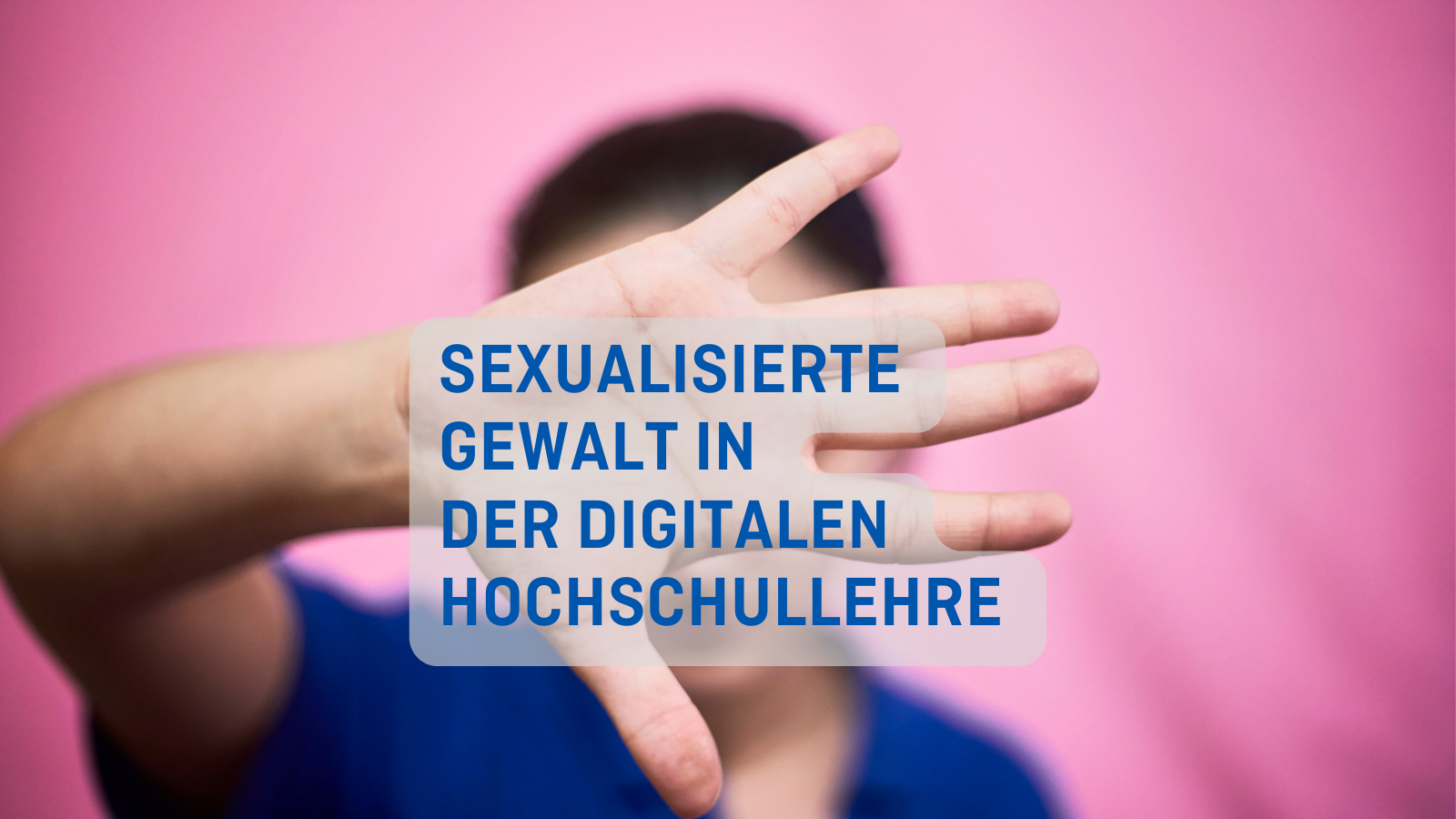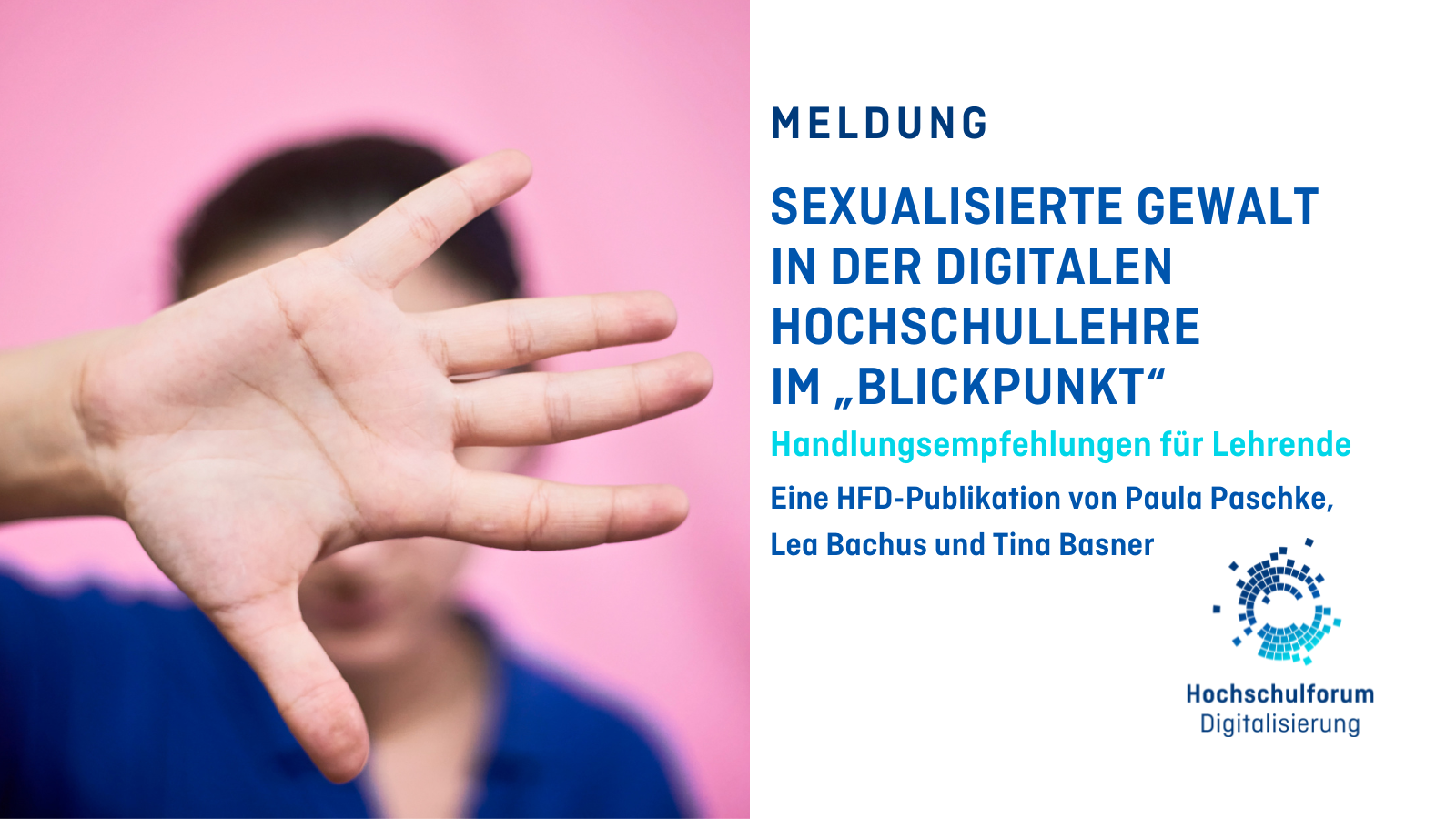Spotlight: Sexual violence in digital university teaching
Spotlight: Sexual violence in digital university teaching
05.10.23
Digital communication is not always free of (sexualized) violence either. In order to address this issue (preventively), this new HFD Viewpoint provides an overview of specific problems of sexualized violence in the digital realm and shows possible courses of action for teachers. The entire publication incl. template for a digital netiquette you can download here for free.

HFD Viewpoints provide a compact classification of various digital topics. This summary was compiled from the perspectives of teachers, students, and victims and provides important information on how to counter sexualized violence in the digital world. The compilation answers the following questions, among others:
- What is sexualized violence in the digital world and how does it manifest itself?
- How can teachers create a safe space and take (preventive) measures against sexualized digital violence?
At the heart of the publication is a template that teachers can copy and paste to use and adapt for their own teaching practice. The template for a netiquette contains rules for fair and respectful interaction in digital spaces and names university contact points to quickly get help in case of (digital) violence experiences.
You can download the publication “Sexualized Violence” here free of charge. Click here for the template.
More on the topic: “(K)ein rechtsfreier Raum – studentische Forderungen zum Umgang mit sexualisierter Gewalt im digitalen Raum an Hochschulen”. – An HFD blog post by Lea Bachus, Paula Paschke and Tina Basner.
Authors:
Paula Paschke (she/her) is a research associate at the Chair of Religious Education and Media Didactics (Goethe University Frankfurt) and is doing her doctorate on discrimination dynamics in religious education through the digital transformation. Additionally, she works as a program coordinator in the Dean of Students Office in the Department of Catholic Theology at Goethe University. She is also active there as a decentralized equal opportunity officer. She was a member of the last DigitalChangeMaker cohort at the Hochschulforum Digitalisierung
Lea Bachus (she/they) studies philosophy and psychology at the University of Bielefeld and the Humboldt University in Berlin. As a student assistant, Lea works in the Bielefeld innovation project “BiLinked”, as well as in the Innovation Hub of the Hochschulforum Digitalisierung. As a member of the “DigitalChangeMaker” class of 2022/23, Lea is also otherwise committed to issues at the intersection of digitization and student participation. Other areas of interest include feminist philosophy and educational work.
Tina Basner (she/her) is a project manager at the CHE Centre for Higher Education for the Hochschulforum Digitalisierung. Here she is in charge of the think tank on the topic of “equal opportunities” and deals with questions of digital participation in studying and teaching.
